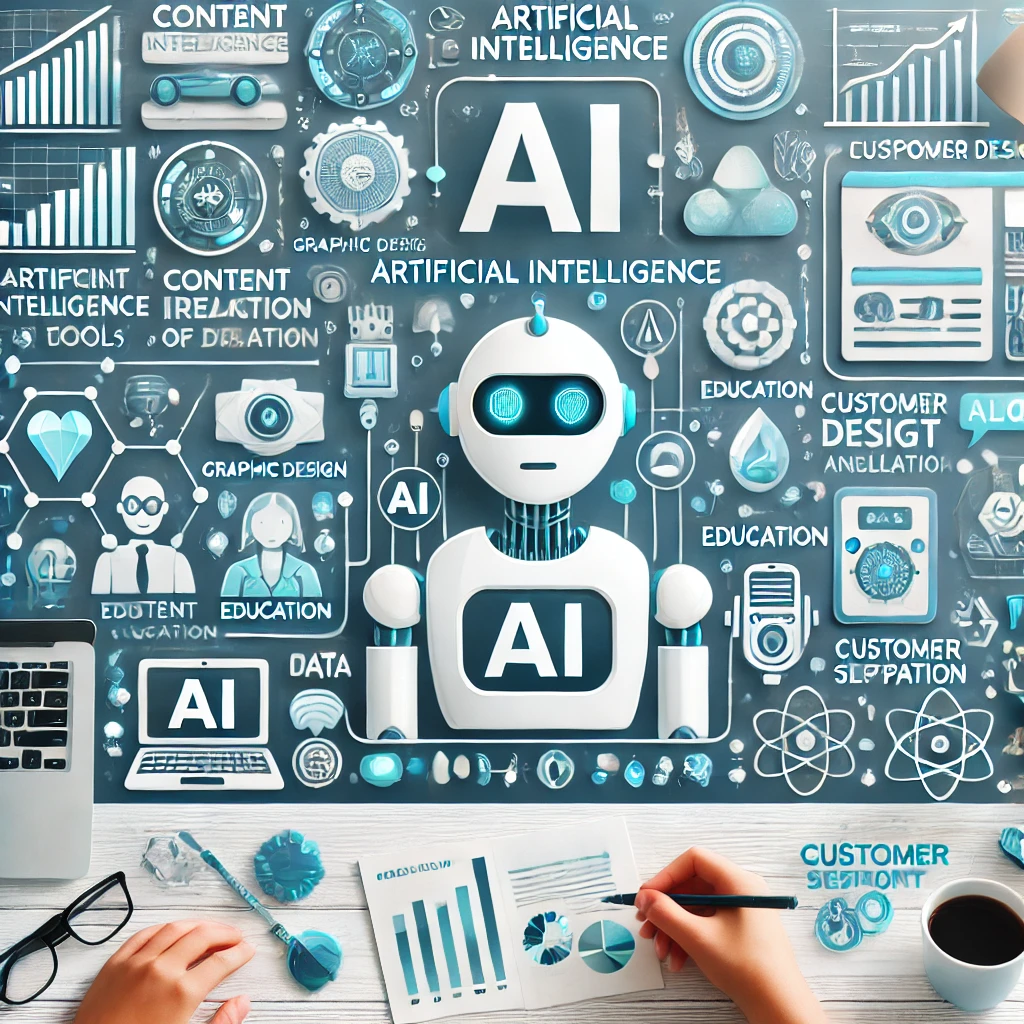Best AI Tools for Different Fields: A Comprehensive Guide
In the era of rapid technological advancements, artificial intelligence (AI) has become a transformative force across various industries. Whether you’re a student, a professional, or a business owner, leveraging AI tools can help streamline processes, improve efficiency, and foster innovation. This article provides an in-depth analysis of the best AI tools for different fields, including their features, benefits, and use cases. To make your decision easier, we’ve also included a comparison table.
Meta Description:
Discover the best AI tools for various fields with this comprehensive guide. Compare features, benefits, and use cases to choose the perfect AI solution for your needs.
1. AI Tools for Content Creation
AI has revolutionized content creation, making it easier to generate articles, social media posts, and marketing materials.
Best Tools:
ChatGPT (OpenAI): Ideal for generating high-quality text, brainstorming ideas, and drafting professional emails.
Jasper AI: Great for creating marketing copy, blog posts, and ad campaigns.
Writesonic: A versatile tool for writing blogs, articles, and product descriptions.
Key Features:
Natural language processing for human-like text generation.
Pre-built templates for various content types.
Integration with tools like WordPress and Google Docs.
Benefits:
Saves time and effort.
Produces SEO-friendly content.
Boosts creativity and productivity.
2. AI Tools for Graphic Design
Graphic design no longer requires expert skills; AI tools can now create stunning visuals with minimal effort.
Best Tools:
Canva Pro: Offers AI features for designing social media posts, presentations, and logos.
Adobe Firefly: Generates custom graphics, logos, and artwork using AI.
DeepArt.io: Transforms images into artwork inspired by famous artists.
Key Features:
Drag-and-drop functionality.
AI-powered suggestions and templates.
Advanced editing tools for customization.
Benefits:
Simplifies the design process.
Delivers professional-quality visuals.
Cost-effective compared to hiring designers.
3. AI Tools for Data Analysis
Data-driven decision-making is crucial in today’s competitive landscape. AI tools can analyze large datasets quickly and accurately.
Best Tools:
Tableau: A powerful AI-driven data visualization tool.
Google Cloud AutoML: Automates complex data analysis processes.
RapidMiner: Provides an end-to-end solution for data mining and predictive analytics.
Key Features:
Real-time data analysis.
Intuitive dashboards and reports.
Machine learning integration for predictive insights.
Benefits:
Improves decision-making.
Reduces the need for manual data processing.
Enhances accuracy and efficiency.
4. AI Tools for Education
AI has transformed the education sector by providing personalized learning experiences and automating administrative tasks.
Best Tools:
Duolingo: Uses AI to personalize language learning.
Khan Academy (AI integration): Offers AI-driven tutoring and personalized feedback.
Grammarly: Improves writing skills with AI-powered grammar and style suggestions.
Key Features:
Adaptive learning algorithms.
Interactive exercises and feedback.
Accessibility across multiple devices.
Benefits:
Enhances learning outcomes.
Makes education more accessible.
Saves time for educators and students.
5. AI Tools for Customer Support
AI-driven customer support tools improve response times and enhance user satisfaction.
Best Tools:
Zendesk AI: Automates customer queries and ticket management.
Intercom: Uses AI for chatbots and personalized customer interactions.
Freshdesk: Provides AI-powered insights and solutions for customer support teams.
Key Features:
AI chatbots for 24/7 support.
Sentiment analysis for better customer understanding.
Multi-channel support integration.
Benefits:
Improves customer satisfaction.
Reduces operational costs.
Handles high volumes of queries efficiently.
Comparison Table
| Field | Tool | Key Feature | Benefit |
|---|---|---|---|
| Content Creation | ChatGPT | Human-like text generation | Boosts creativity and saves time |
| Jasper AI | Pre-built templates for marketing | SEO-friendly content | |
| Writesonic | Versatile content generation | High-quality blogs and articles | |
| Graphic Design | Canva Pro | AI-powered design suggestions | Simplifies design process |
| Adobe Firefly | Custom graphics generation | Professional visuals | |
| DeepArt.io | Artwork inspired by famous artists | Unique visual content | |
| Data Analysis | Tableau | Real-time data visualization | Enhances decision-making |
| Google Cloud AutoML | Automated data analysis | Increases efficiency | |
| RapidMiner | Predictive analytics | Reduces manual efforts | |
| Education | Duolingo | Personalized language learning | Better learning outcomes |
| Khan Academy | AI-driven tutoring | Accessible education | |
| Grammarly | Grammar and style suggestions | Improves writing skills | |
| Customer Support | Zendesk AI | Automated ticket management | Faster response times |
| Intercom | Personalized customer interactions | Better customer satisfaction | |
| Freshdesk | Multi-channel support | Handles high query volumes |
Conclusion
AI tools are revolutionizing how we work and live, offering solutions for content creation, graphic design, data analysis, education, and customer support. By choosing the right tool for your needs, you can save time, reduce costs, and enhance efficiency. Use this guide as a reference to select the best AI tools tailored to your specific requirements.
Leverage the power of AI to stay ahead in your field, and remember, the possibilities are endless!


